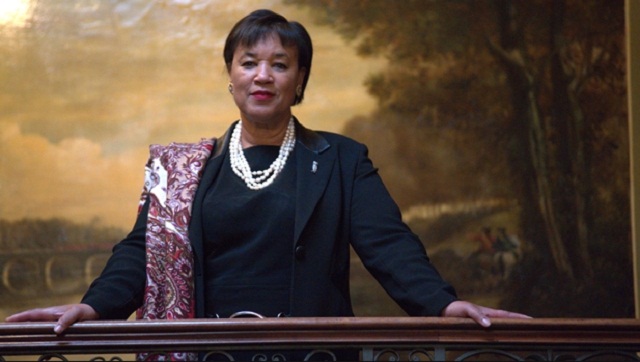
Yaoundé, Cameroon | AFP | The Commonwealth secretary-general has urged Cameroon to resolve “through peaceful dialogue” a crisis that has shaken the country’s English-speaking regions since last year.
Patricia Scotland, who is on a four-day official visit to the country, expressed “great sadness” with the violence in the Northwest and Southwest regions of the central African country, where Cameroon’s anglophone minority is concentrated.
“Cameroon is renowned for its tradition of peaceful and harmonious interactions. It is with great sadness that we see it in challenging times,” she said in a speech on Tuesday evening.
“I encourage Cameroonians from all walks of life to embrace peace, unity and resolve any differences through peaceful dialogue.”
English-speakers account for some 20 percent of the nation’s population of 23 million. The minority dates to the emergence of Cameroon in 1960-61 as France and Britain wound down their colonies in west Africa.
Anglophones have long protested against what they perceive to be a bias in favour of the French-speaking majority.
According to local media, Scotland met with President Paul Biya, and is also expected to meet other political leaders, including from the various parties, as well as civic groups and economic leaders.
Since November 2016, resentment has fed demands for autonomy or a separate state to which the government has responded with a crackdown, including curfews, raids and restrictions on travel.
In turn, separatists have begun an armed campaign, targeting police and soldiers. Four were killed this week alone and 10 last month, authorities say.
Last week, the country’s main opposition accused the government of having “militarised” the western anglophone regions, saying “abuse has been committed” against local people.
International monitors say between 20 and 40 people have been killed since late September.
For his part, 84-year-old Biya — who has rejected the anglophone regions’ demands — reaffirmed his commitment to “bilingualism and multiculturalism”.
During a speech, he denounced attacks against security forces by “extremists” working “on behalf of a terrorist organisation with clear secessionist objectives”.
But he said he wanted “to continue to look for solutions that would strengthen national unity”.
 The Independent Uganda: You get the Truth we Pay the Price
The Independent Uganda: You get the Truth we Pay the Price





